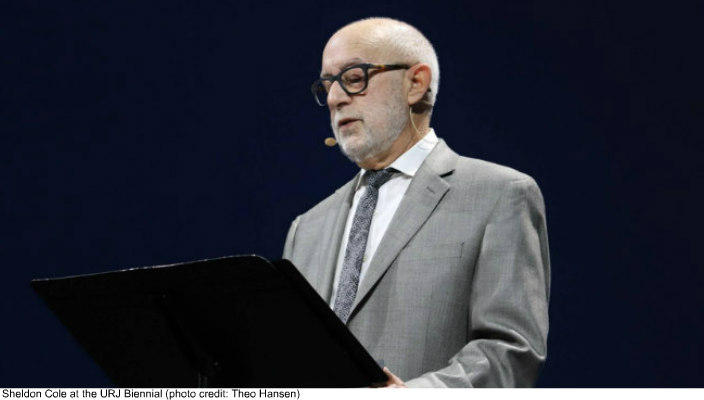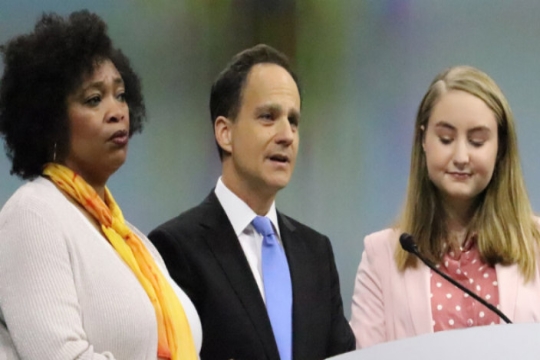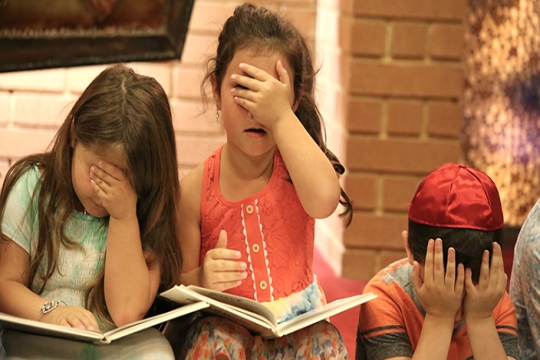
Editor's note: The text that follows was presented before a live audience at the 2019 URJ Biennial on Wednesday, Dec. 11 as Sheldon Cole of Vancouver, BC, shared his Jewish story with convention attendees.
So how did I get here? At this podium? Today?
I grew up in a secular Jewish home. No bar mitzvah, no Hebrew school, and other than my wedding, no synagogue. My father was pro-social justice – but staunchly secular.
I myself had no interest in being a member of any congregation. However, in the 1980s, we joined Temple Sholom in Vancouver, BC, for a few years so our kids, Randy and Noli, could become bar and bat mitzvah. After we left, my wife made me promise that if she ever felt the need to belong again, I would not resist.
Thirty years later, she felt the need, so she approached me, expecting resistance. But something strange was happening with me. I was thinking the same thing. She was stunned and so was I, but we both felt a need for community in our aging years.
So we rejoined Temple Sholom.
I remember meeting with Rabbi Dan. I warned him that I didn’t think I could contribute on religious matters, having neither faith nor experience. He just smiled warmly, as though he knew something about me that I didn’t yet.
Later that year, I stood as the ark was opened during High Holiday services. I gazed into the brightness and beauty of the dressed Torahs and gasped. I stood there with tears running down my face, utterly confused. My wife thought I was in medical distress. I wasn’t – but I was profoundly moved.
It was an epiphany of sorts. I realized, in that moment, that Judaism has an intrinsic value I never before understood.
Those scrolls presented to me a gift-wrapped oxymoron I could not resist. I started to question everything through a new lens. Judaism: Where did it apply? How did it apply? Why did it apply?
And then in 2015, Temple Sholom decided to sponsor two Syrian refugee families to Vancouver, both Kurdish Muslims. That’s right: a synagogue bringing Muslim families to Canada. The endeavor had an irresistible contradiction. I signed on.
For the next three years, over 100 temple members volunteered their time, skills, and resources, which met the sponsorship requirement for the two families. We’ve become extremely close with both families; they’ve become part of our extended family.
I’m now more involved than I ever thought possible. Call it religious, call it spiritual, call it mishugenah – but contributing my time and energy for the betterment of others in a Reform synagogue environment works for me.
Judaism: How does it apply? Where does it apply? Why does it apply? It starts within, and I’m now happy to explore.
I found my place at Temple Sholom – but regarding Judaism, the story continues.
Looking for more addresses from the URJ Biennial? Check out this roundup.
Have something to say about this post? Join the conversation in The Tent, the communications and collaboration platform for congregational leaders of the Reform Movement. You can also tweet us or tell us how you feel on Facebook.
Related Posts

The Shalom Collaboration: How Performing at the URJ Biennial Changed Our Career Trajectory

"What Will You Do at Such a Time as This?"
